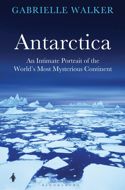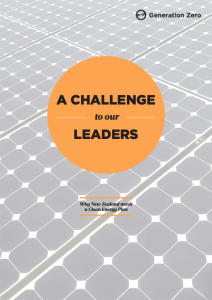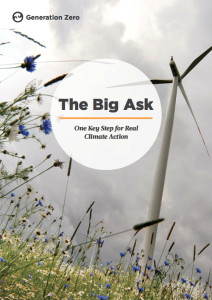 Science journalist Gabrielle Walker’s book Antarctica: An Intimate Portrait of a Mysterious Continent (Bloomsbury, 2012) tells an absorbing story of the wide variety of scientific work undertaken in Antarctica and the support services that maintain it. It also attempts to capture the human fascination of the continent, not least for the author herself in her five sojourns there. She provides close-up observations of some of the specialist teams working on an array of investigations: penguins, seals, under-ice sea creatures, meteorites, astronomy, paleoclimatology, the dynamics of ice movement and loss, and more. Stories of the early explorers find a place, and the psychology which motivates people to undertake sometimes long scientific enterprises in such a demanding environment. Her book is striking and highly readable, often gripping.
Science journalist Gabrielle Walker’s book Antarctica: An Intimate Portrait of a Mysterious Continent (Bloomsbury, 2012) tells an absorbing story of the wide variety of scientific work undertaken in Antarctica and the support services that maintain it. It also attempts to capture the human fascination of the continent, not least for the author herself in her five sojourns there. She provides close-up observations of some of the specialist teams working on an array of investigations: penguins, seals, under-ice sea creatures, meteorites, astronomy, paleoclimatology, the dynamics of ice movement and loss, and more. Stories of the early explorers find a place, and the psychology which motivates people to undertake sometimes long scientific enterprises in such a demanding environment. Her book is striking and highly readable, often gripping.
It’s the climate change aspects of the book that I want to highlight here. Walker, who has a strong academic science background, specialises in energy and climate change. She co-authored a book on climate change with Sir David King a few years ago. I reviewed it at the time. Her knowledgeable familiarity with the subject is often in evidence in Antarctica.
Continue reading “Antarctica: An Intimate Portrait of a Mysterious Continent”




 Late last week, New Zealand’s far right ACT party was pleased
Late last week, New Zealand’s far right ACT party was pleased  Science historians Naomi Oreskes and Erik Conway, co-authors of the acclaimed
Science historians Naomi Oreskes and Erik Conway, co-authors of the acclaimed  In this week’s article at The Daily Blog —
In this week’s article at The Daily Blog —
You must be logged in to post a comment.